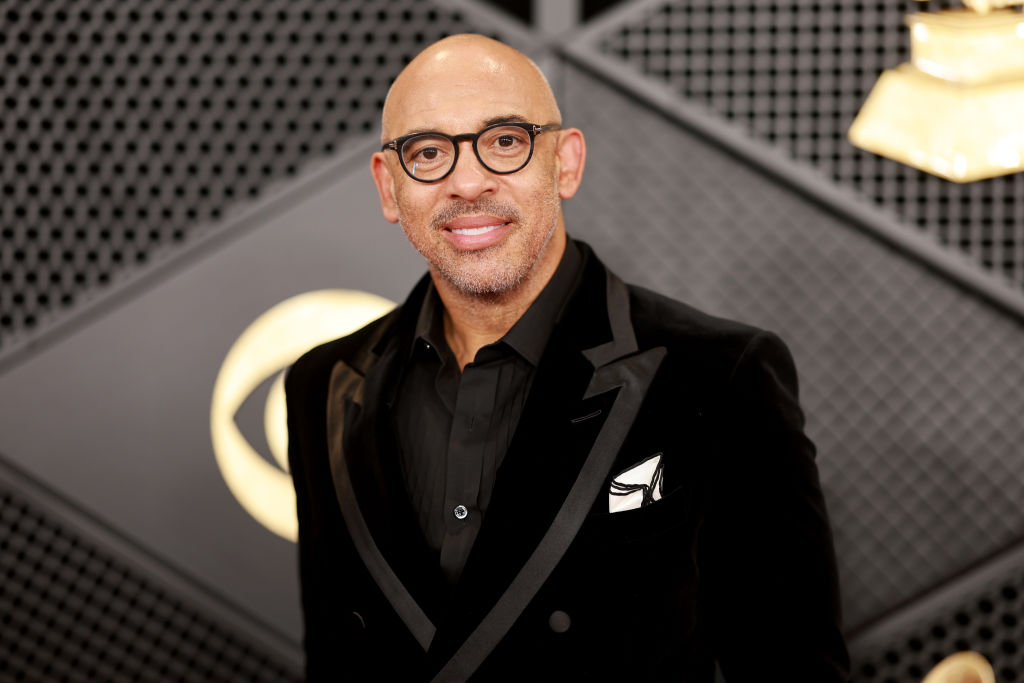The Impact of AI on the Music Industry: Insights from the Grammy Perspective
A recent announcement by Harvey Mason Jr., the CEO of the Recording Academy, has ignited discussions within the music industry regarding the role of artificial intelligence (AI) in the creative process. The organization known for honoring musical excellence—the Grammy Awards—has taken a step toward embracing AI, sparking a mix of confusion and curiosity among artists and industry insiders alike.
Grammy Awards Embrace AI—With Caveats
When Mason declared that music produced using AI would be eligible for Grammy consideration, initial reactions were a combination of surprise and skepticism. He soon clarified that while AI technologies could assist in the creative process, it is paramount that only human artists can submit their work for the prestigious awards. "It’s a bit of a fine line, but that’s going to evolve,” Mason explained in an interview with TechCrunch. His goal? To continue celebrating human creativity without overshadowing it.
As AI technology infiltrates various sectors, the arts are facing important questions about authenticity, copyright, and royalties. Musicians are divided; some express fear over being replaced by AI, while others are intrigued by the possibilities it presents. For instance, some artists are reacting defensively, sending cease-and-desist orders against unauthorized AI-generated representations, while others adapt, seeking financial compensation for their digital doppelgängers.
Diverse Reactions Among Artists
Musician Devante, known as "the Artist," strongly opposes the integration of AI in music creation. He voiced concerns over the ease with which AI can replicate human artistry: “As an artist, it’s disheartening,” he stated. This sentiment echoes a growing anxiety among musicians about the integrity of their craft and livelihood.
On the flip side, one anonymous musician working in Big Tech suggests that many who feel threatened by AI should shift their perspective, drawing parallels to the Industrial Revolution which ultimately created more opportunities. He urges fellow creatives to adopt a more optimistic outlook, embracing technological advancements rather than fearing them.
AI Adoption in Music Production
AI is already playing a significant role in many aspects of music production, primarily in areas like mastering and sound equalization. Mason pointed out that ongoing concerns in the industry revolve around ensuring fair credit for human creators and protecting artists’ rights regarding the usage of their work, as well as their likenesses. These discussions come at a crucial time as the legal landscape struggles to keep pace with technological advancements.
To tackle these issues, Mason initiated the Human Artistry Campaign, advocating for clearer regulations surrounding AI usage in the arts. His involvement with legislative efforts, such as the ELVIS Act in Tennessee, aims to bolster protections for artists against unauthorized exploitation of their work and likenesses.
Legislative Challenges and the Push for Regulation
The ongoing debate about AI regulation in music also resonates beyond the industry itself. Challenges arise from differing approaches to AI governance, with some tech advocates arguing for minimal regulation to foster innovation and others calling for stricter rules to address potential societal harm.
This month, a legal controversy hit the headlines when former President Donald Trump utilized unauthorized AI-generated images of Taylor Swift in campaign materials, raising questions about the application of the newly passed ELVIS Act. As Mason noted, the lack of precedent for these laws amplifies the uncertainty artists face regarding their protection in the age of AI.
A Changing Landscape for Musicians
The emergence of AI-driven music has not only raised concerns but also led to intriguing developments in the industry. An unauthorized deepfake track featuring AI-constructed vocals by Drake and the Weeknd went viral, prompting the Academy to swiftly intervene. Despite being deemed ineligible for Grammy consideration, its impact lingered, demonstrating AI’s disruptive potential.
Further complicating matters was the recent controversy involving Drake, who faced legal threats from Tupac’s estate for utilizing AI-generated vocals of Tupac in a diss track against Kendrick Lamar. This highlights the urgent need for comprehensive guidelines to ensure artists’ rights are recognized and upheld in this new digital era.
The Future of Music in the Age of AI
Despite the rapid evolution of AI technologies, Mason remains hopeful about the role of human artists in music creation. He believes that just as artists have adapted to synthesizers and sampling, they will learn to coexist with AI. “We’ll make great music with the new technology,” he asserted, emphasizing the necessity for fairness in how creators are recognized and compensated.
As we stand at the crossroads of tradition and innovation, the music industry must forge a future where technology enhances, rather than replaces, human creativity. The journey ahead promises to be as challenging as it is exciting.
Conclusion
The intersection of AI and music is a complex terrain that demands careful navigation. As the Recording Academy works to establish guidelines for the ethical use of AI in music production, the ultimate goal remains clear: to honor human creativity while embracing the possibilities presented by technology. As Mason aptly put it, the music world must evolve alongside AI to ensure that fair practices are maintained at every level of artistry.




